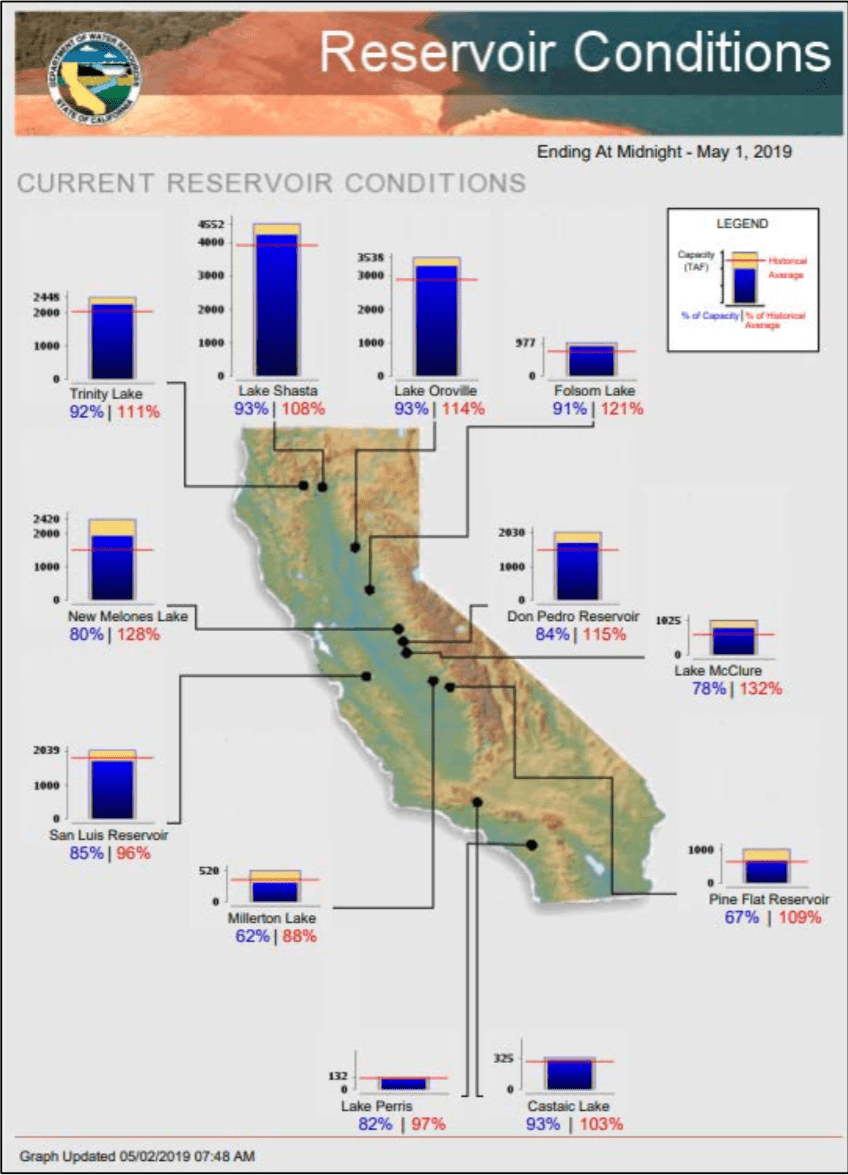
The California Department of Water Resources (DWR) reported on May 2 that its Northern Sierra snowpack and water equivalent levels were 188 percent of average, nearly double the average for this time of year. The 2019 snowpack reached its peak on March 31 and is the fifth largest on record, according to the California Cooperative Snow Survey Program.
“California’s cities and farms can expect ample water supplies this summer,” said DWR Director Karla Nemeth, in a prepared statement.
On Thursday morning, Department of Water Resources surveyors weighed a tube of snow and found it held 27.7 inches of water, about 188 percent of the historical annual average for the site. DWR conducted its fifth and final manual survey at Phillips Station near Sierra-Tahoe, recording a snow depth of 47 inches and a snow water equivalent (SWE) of 27.5 inches. The statewide average snowpack sits at 31 inches of SWE, which is 144 percent of average for this time of year.

The state’s largest six reservoirs are full, holding between 96 percent of their historical average capacity at San Luis Reservoir to 128 percent at Melones Reservoir. Lake Shasta, California’s largest reservoir, is 93 percent full, which is 108 percent of its historical average.
“2019 has been an extremely good year in terms of snowpack,” said Jon Ericson, DWR Chief of the Division of Flood Management. “Based on our surveys, we are seeing a very dense, cold snowpack that will continue to produce run-off into late summer.”
The Sierra snowpack, dubbed California’s “frozen reservoir,” is what gets much of the Golden State through long, dry summers and autumns as melting snow fills lakes for gradual release during the dry months. It contributes about a third of California’s water when it melts. Hydrologists estimate the April through July snowpack melt and river runoff will be at 158 percent of normal this year.